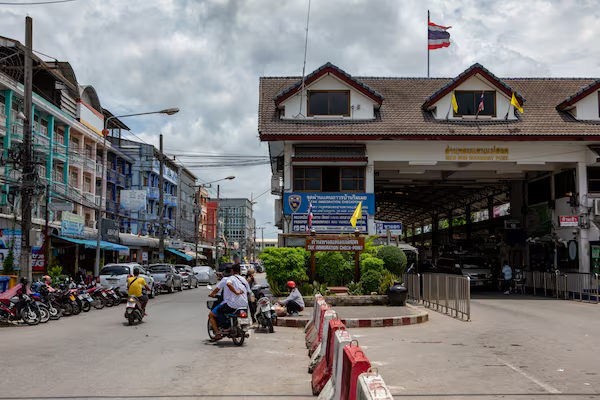
31-year-old Chinese actor Wang Xing was offered an acting job on WeChat by someone claiming to represent a major Thai entertainment company, according to Thai police. On January 3rd, Wang arrived at the airport of Bangkok for what he believed was a movie casting call. Instead, he was picked up and driven to an infamous scam center in Myanmar’s Myawaddy, across Thailand’s border. There, his head was shaved and he was forced to undergo training on how to scam people through phone calls just as they had done to him. For three days, in fear for his life, Wang stayed in the scam center. He was given minimal food and was not allowed time to use the toilet. However, on January 7th, just a couple days after he was reported missing, Thai police found and rescued Wang. Although his swift return home brought hope, many others are not as fortunate. Like Wang, hundreds of thousands of people have been trafficked by Myanmar’s scam compounds, often operated by Chinese crime syndicates. Wang later reported to police that at least 50 other Chinese nationals shared the same compound with him. These people have been lured by promises of well-paying jobs and increased opportunities only to be forced into participating in online fraud schemes in places where beating and torture are common.
After Wang’s rescue, hundreds of Chinese families began to call on their government to help find their loved ones, some of whom had been gone for years and were believed to be held in these scam centers. Other Chinese citizens active on social media demanded updates on the 50 others who were with Wang. BBC reports a top liked comment on Weibo which reads, “We are desperate to know if the remaining Chinese nationals [who were] with him have been rescued. Other people’s lives are also lives.”
CNN reports that China has worked with Myanmar authorities to crack down on scam centers near their shared border. While Chinese authorities claim that many of the scam compounds in northern Myanmar have been “completely eradicated,” with more than 53,000 Chinese “suspects” and trafficked victims sent back to China, NGOs and experts tracking these criminal records say that many scam centers have escaped and moved further south.
Despite fears back in China, Wang clearly stated in an interview that “Thailand is quite safe, so there’s no need to worry. If I have the chance in the future, I will definitely come back here again.”
The hope that Wang’s comments have brought does not hide the reality of the growing scam industry in East Asian countries. His brief disappearance revealed how common the danger of this trafficking had become. About 3,900 Chinese citizens are still held in scam compounds in Myanmar’s Myawaddy according to The Civil Society Network for Victim Assistance in Human Trafficking. Hundreds of Chinese families continue to petition to their government and raise awareness on social media, eager to find their lost loved ones.
This article also appears in our February 2025 print edition.


















